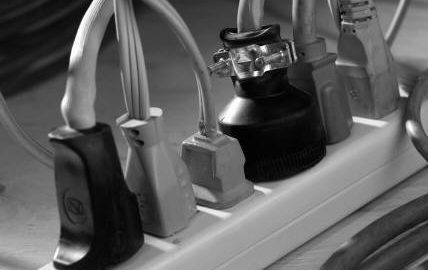Far too many homeowners are under the impression electrical work is the perfect DIY project. While there may be some tasks that you can do on your own, in most cases it is better to call in a licensed electrician. Here are some facts, figures, and tips regarding electrical fire safety.
Electrical Fire Safety Facts and Figures
- Typically, over $1 billion in damages is realized in property loss every year due to electrical fires.
- Over 26,000 deaths occur every year in fires caused by electrical problems.
- The holiday season (December and January) show the highest concentration of electrical fires.
- Wiring that has been “fixed” is one of the largest culprits of home fires. This is especially disturbing because few of these fixes are actually done by an actual electrician.
- Problems with light bulbs and light fixtures are among the leading causes of fires.
- Improper maintenance, overloading of circuits, and the misuse of electrical cords are a significant cause of “avoidable” electrical fires.
- More residential fires are started in the bedroom, but the most deaths occur in fires that are started in living areas of the home (such as the dining room or living room).
- While system failure is the cause of some home fires, in most cases, it is due to improper wiring and the overloading of circuits (a common mistake for DIY homeowners).
Electrical Fire Safety Tips
- Extension cords should not be used on a permanent basis. They are meant for temporary power only. If you are using one for something specific that is in use all the time, you should have extra outlets installed in that location.
- Never use an extension cord for a major appliance, always plug them directly into an outlet.
- All power strips and surge protectors should feature overload test label.
- Check wiring on all appliances several times a year. Schedule it during daylight savings time to make it easy to remember. Any damaged or frayed wiring should be replaced immediately.
- Any electrical tool causing sparks, electrical shorts, shocks, or that overheats should be replaced.
- Always use the recommended wattage light bulb for your fixtures.
- Never force a three-prong plug into a two-pronged outlet. Use an adapter or use the proper outlet.
- All electrical work should be performed by a licensed electrician.
